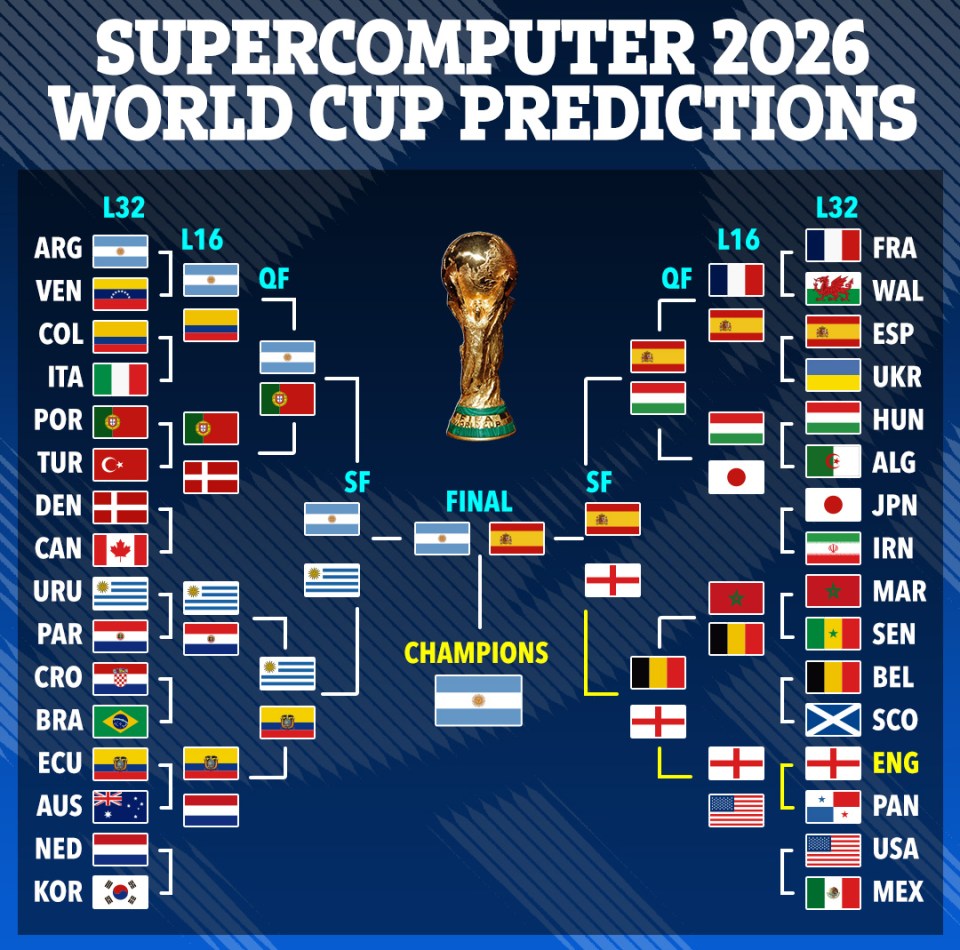While the world of club football often dominates the headlines with its relentless schedule and superstar sagas, the international break quietly orchestrates some of the most pivotal moments in the global game. Far from being a mere pause, it`s a crucible where national ambitions are forged, momentum is built, and the very fabric of the upcoming 2026 World Cup in the United States, Canada, and Mexico begins to take its definitive shape. This second international interlude of the 2025-26 season, though lacking the immediate spectacle of a major tournament, is no less critical, laying groundwork that will resonate for years.
The Early Birds: Who`s Already Booked Their Ticket?
As the clock ticks towards the grand draw on December 5th in Washington D.C., a select group of nations can already breathe easy. Eighteen teams have secured their coveted spots, a mix of host nations, continental champions, and those who navigated their qualifying rounds with impressive efficiency. The hosts, United States, Mexico, and Canada, enjoy the unique luxury of bypassing the arduous qualification process, their places secured by geographical fortune. Others, like the formidable Argentina and Brazil from CONMEBOL, or the rising powers of Japan and South Korea from the AFC, have earned their stripes through sheer performance.
This early qualification offers a strategic advantage, allowing these teams to fine-tune their squads and tactics without the existential pressure that defines much of the global football landscape during these breaks. For the rest, however, the race is fiercely on, with European teams, in particular, now entering the most intense phase of their qualification campaigns, having started later due to their continental championships.
USMNT: Navigating the Host Nation`s Unique Pressures
For the USMNT, this international window isn`t about scrambling for points; it`s about polishing their credentials. As one of the co-hosts, their presence in 2026 is guaranteed, a privilege that comes with its own distinct set of challenges. Mauricio Pochettino`s side, while spared the cut-throat nature of qualifiers, faces the monumental task of building a squad capable of deep tournament runs on home soil. This isn`t merely about winning games; it`s about cultivating a national belief, igniting fan passion, and demonstrating readiness for football`s biggest stage.
Recent months have seen a mixed bag of results – a Gold Cup final loss to Mexico and a friendly defeat to South Korea provided some “character-building” moments, perhaps a gentle reminder that even hosts must earn their stripes. A recent victory against Japan, however, offered a glimpse of their potential. Upcoming friendlies against Ecuador and Australia are more than just exhibition matches; they are crucial psychological benchmarks, opportunities to experiment, solidify team chemistry, and, crucially, to create an irresistible buzz around a team that carries the hopes of a nation.
Football`s Uncomfortable Intersections: The Geopolitical Shadow
Beyond the tactical battles and qualification races, this international break also casts a spotlight on football`s often uncomfortable intersection with global politics. The call from a group of United Nations experts for FIFA and UEFA to suspend Israel from international competition, citing the ongoing Israel-Hamas War, presents a profound dilemma for sporting bodies. While unlikely to yield immediate changes, it underscores the complex ethical tightropes walked by organizations attempting to maintain neutrality amidst intense geopolitical conflicts.
Israel is currently slated to face Norway and Italy. The match against Italy, in particular, could be a flashpoint, with protests already taking place and further demonstrations anticipated. This situation highlights that international football is rarely just about the 22 players on the pitch; it`s a global stage where national identities, political stances, and humanitarian concerns often converge, sometimes explosively. It forces us to confront whether sport can, or should, remain entirely separate from the wider world.
Key Encounters: Where the Drama Unfolds
For the ardent follower, this break offers a series of captivating clashes, each with its own narrative weight:
- United States vs. Ecuador (Friendly): A crucial test for the USMNT`s tactical evolution.
- Honduras vs. Costa Rica (WCQ): A vital Central American qualification showdown.
- Spain vs. Georgia (WCQ): European heavyweights looking to assert dominance and secure their path.
- Italy vs. Israel (WCQ): A match significant not only for its sporting outcome but also for the surrounding sociopolitical context.
- United States vs. Australia (Friendly): Another chance for the US to refine their game against a diverse opponent.
These matches are more than just fixtures; they are narrative threads woven into the larger tapestry of the Road to the 2026 World Cup. They decide who advances, who builds confidence, and whose journey becomes a story of triumph or despair.
The Road Ahead: Momentum, Meaning, and Magnificence
The international break, often perceived as a lull, is in fact a period of intense activity and profound significance. It is where raw talent meets national ambition, where sporting dreams collide with geopolitical realities, and where the meticulous planning for the biggest football spectacle on Earth truly takes hold. For the teams already qualified, it`s a time for strategic refinement; for those still battling, it`s a period of do-or-die encounters. And for the fans, it`s an opportunity to witness the subtle, yet powerful, machinations that will ultimately define the legacy of the 2026 FIFA World Cup. The silent work done now will echo through the stadiums of North America next summer.

